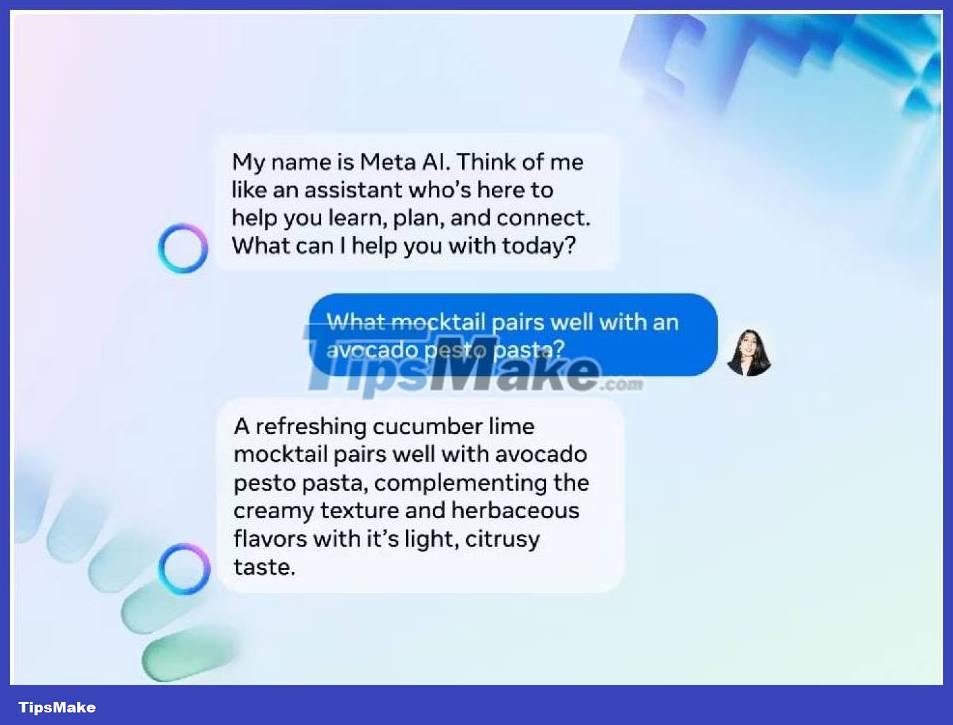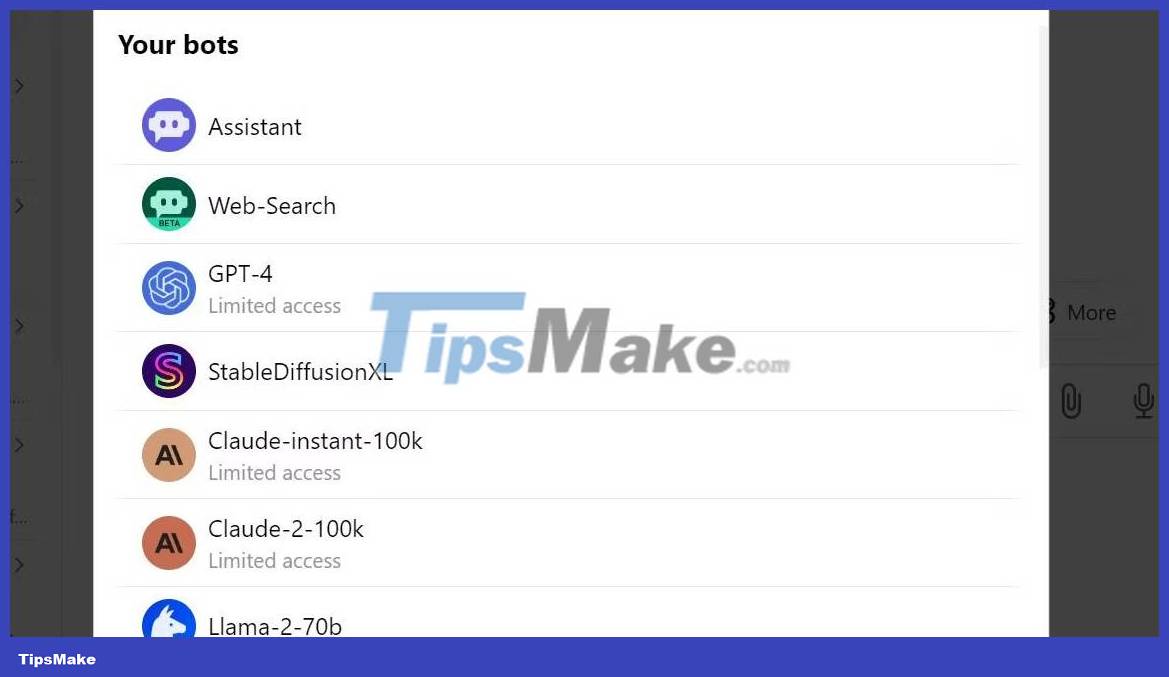What is MetaAI? Can it compete with other chatbots?
Artificial intelligence (AI) is all the rage, and almost every major tech company has an ace up its sleeve in the race. OpenAI, Google, Microsoft and even e-commerce giant Amazon are all trying to compete with each other.
Meta, an important figure in the AI space, has been relatively quiet. However, the social networking giant has revealed MetaAI, a future rival to OpenAI's ChatGPT and Google's Bard. But how good is MetaAI and can it compete with other established AI chatbots? Let's find out details through the following article!
Meta announces the MetaAI chatbot

While the likes of OpenAI, Anthropic and Google are the faces of AI technology today, Meta has made comparable strides in the AI landscape, albeit with less publicity. Most of Meta's platforms, including Facebook and Instagram, rely heavily on AI to function smoothly.
However, unlike its peers, much of Meta's AI technology has been kept private, powering various applications that are not available as public tools like AI chatbots. Previous efforts to build public-facing AI tools of this type have mostly failed. Although, Meta has now announced that the company is launching an AI chatbot called MetaAI.
What is MetaAI?

MetaAI is an AI-powered personal assistant designed to complete tasks such as providing answers to questions and creating images based on natural language prompts. If you've used ChatGPT, the idea behind MetaAI is similar, albeit with a bit of nuance.
MetaAI is powered by a refined version of Meta's Llama-2 large language model. Llama-2 is a relatively powerful open source language model currently deployed on several AI platforms such as Quora's Poe.com.
MetaAI will be available in regular chatbot interfaces like ChatGPT, but will also be integrated into Meta's messaging apps like Messenger, Instagram and WhatsApp. So from any of those interfaces, you can chat about anything and get answers.
But this is where MetaAI will really get interesting. On some Meta platforms where it will be integrated, the AI engine will be deployed as custom or niche chatbots trained to have better conversations on specific topics.
In a demo at the Meta Connect 2023 event, Meta introduced a MetaAI chatbot named Max, which acts as a virtual chef and gives you cooking instructions. A chatbot named Lily acts as your editor and writing partner. There's also a chatbot named Lorena who will be your tour guide and Luiz, a talented MMA expert with whom you can interact. Meta partners with celebrities like UFC fighter Israel Adesanya and American rapper Snoop Dogg to be the face of certain chatbots.
But that's not all. MetaAI will also serve as an access point to Meta's other AI technologies such as the EMU (Expressive Media Universe) image generation model. So you can use MetaAI chatbot and create images or in WhatsApp to create stickers using simple natural language prompts.
Can MetaAI compete with other AI Chatbots?

The AI chatbot space is very competitive. With impressive offerings like ChatGPT, Claude AI, Bard, Character AI, and Perplexity, breaking into the AI chatbot market won't be easy even for big companies like Meta.
Additionally, Meta's Llama-2, which supports MetaAI, is not exactly the most advanced AI model on the market. However, it still has significant capabilities. In an internal evaluation of the large language model Llama-2, it outperformed GPT-4 and PaLM 2 in several key metrics. However, we expect the tweaked version of Meta to be much better.
But beyond the capabilities of Llama-2, Meta also has a unique advantage - a large user base that is deeply integrated into its product ecosystem. Similar to what happened with the launch of the Threads microblog platform, Meta's MetaAI could go live with millions of users simply by tapping into Meta's existing user base.
That means the way we use AI will likely shift from an all-in-one chatbot-based approach to more tightly integrating AI tools into the platforms we already use for work and Connect with friends. By bringing MetaAI straight into messaging apps like WhatsApp and Messenger, Meta not only creates a path for billions of potential users but also has the potential to future-proof its AI service in popularity.
Will MetaAI succeed or fail?
By leveraging its huge user base and integrating MetaAI into popular platforms like Messenger and WhatsApp, Meta has its own advantages despite using an AI model that may not be the most advanced. Relevant, personalized chatbots are an attractive concept that can resonate with users.
While only time will tell whether MetaAI can truly compete with the likes of ChatGPT and Claude, Meta is betting that tight integration with the platform's ecosystem will drive adoption . The future of AI assistants could be a landscape of specialized bots rather than one-size-fits-all chat platforms.
You should read it
- ★ How to chat typeface in Facebook Messenger
- ★ How to combine photos in Photoshop from 2 different images
- ★ Instructions for iOS 11.3 official update to turn off the iPhone slowing feature
- ★ Acer has released the first three Core i3 laptops in Vietnam
- ★ Manage the default UNIX license with adduser and umask